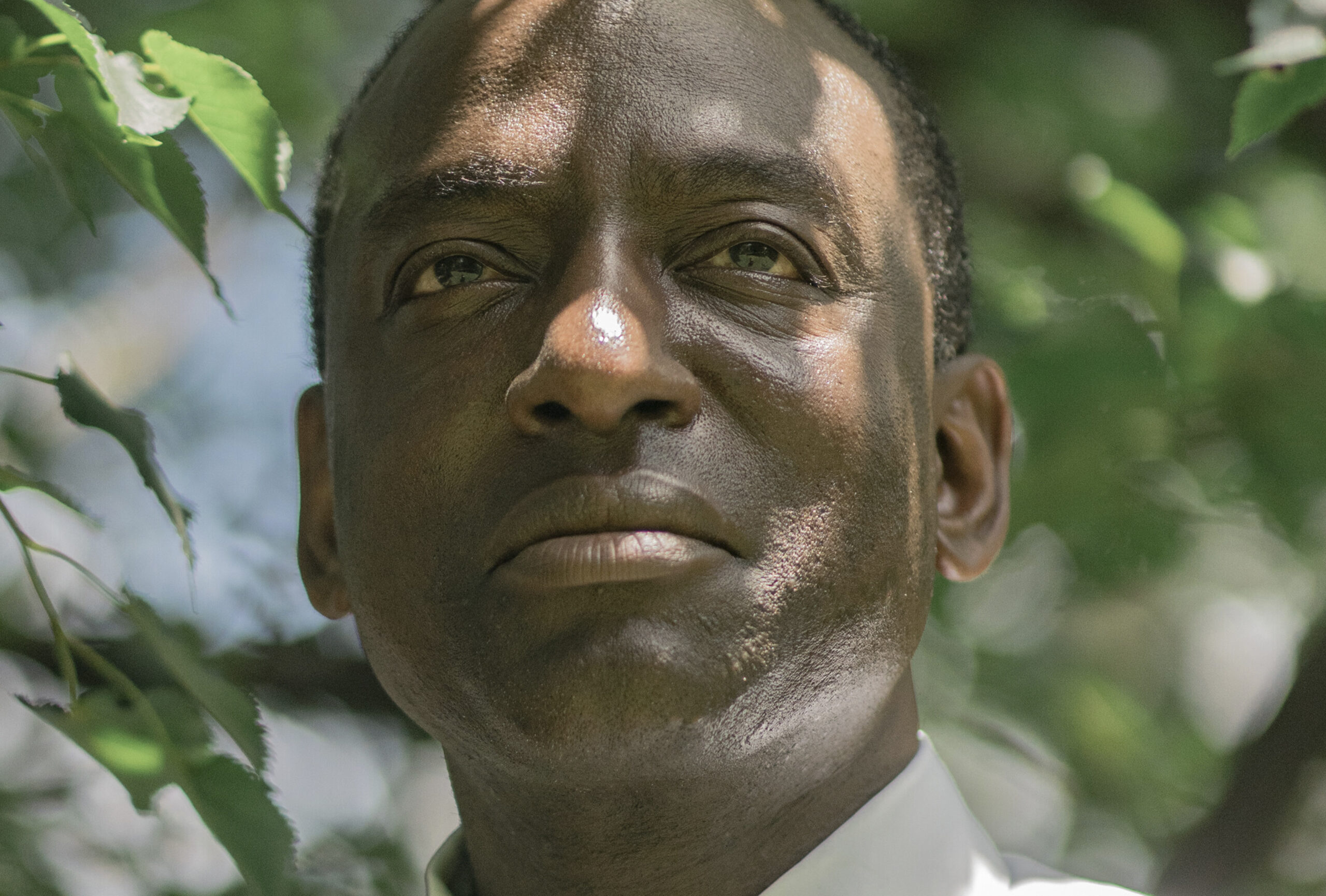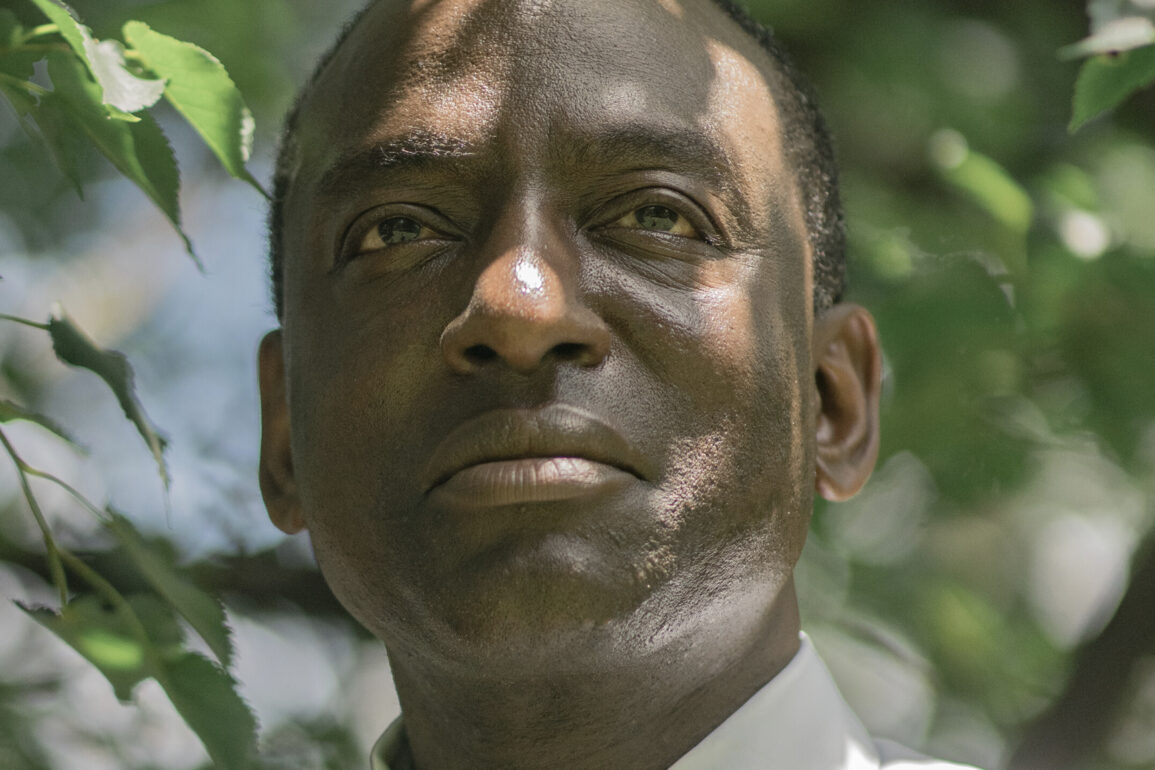
Yusef Salaam spent 12 Thanksgivings wrongly convicted of rape and assault. He’s spending this holiday celebrating his election to the New York City Council earlier this month.
“There’s definitely a lot to be thankful for and also a lot to plan for,” Salaam said in an interview with POLITICO Magazine.
Salaam was imprisoned for nearly seven years for the 1989 attack on a Central Park jogger that he didn’t commit. The episode inflamed the city’s racial tensions (and even led future President Donald Trump to call for the death penalty for the young Black and Latino men who were falsely accused). Five more years passed before his conviction was overturned, and, the group long disparaged as the “Central Park Five” was newly dubbed the “Exonerated Five.”
Salaam maintains a remarkable optimism, brushing off the notion of remaining “sad and angry and bitter,” even as he’s clear-eyed about a criminal justice system that he said has not changed much since his wrongful arrest and conviction.
The political outsider bested experienced elected officials to win a Democratic primary in June, which all but ensured he’d claim a seat of historic Black political power representing Harlem.
As Salaam begins his next chapter as a member of the fractious New York City Council, he’s hoping to translate his own experiences into the kind of politics that centers on community.
“I’ve always been thinking about what happened to me as it relates to what happened to us,” he said. “How do we pull each other up?”
This interview has been edited for length and clarity.
Emily Ngo: You were 15 at the time of your arrest. Do you ever think about what you would tell your 15-year-old self, especially in these recent weeks when you’re processing your election victory?
Yusef Salaam: You’ve got to understand: My 15-year-old self — my goodness — I wanted to wake up from the American nightmare. I wanted to still have that American dream. I didn’t want to be confronted with the reality of what America represents for Black people. But the beauty is that as I awoke from that nightmare, I realized that I now have new eyes that could see in the dark, that I can speak life and truth to power. I can encourage people to take the lemons that life has given us and make lemonade.
Because it’s one thing to be sad and angry and bitter, but it’s another thing to be better and stronger and thoughtful and planning and still have a dream, still dream with your eyes wide open. And why are your eyes wide open now when you dream? It’s because you need to be able to make sure that you can see that rug before it gets pulled out from underneath you.
Ngo: How do you believe the American justice system has changed between then and now?
Salaam: Well, to be honest with you, I don’t think that there’s really been that much change in the American justice system. There are some gains that have been made, of course. But they made people believe that what happened to me and the four of my brothers — the Central Park Five, as we were once known, now the Exonerated Five — they made people believe that this was an anomaly. And yet, here we are, decades later, being the modern-day Scottsboro Boys.
To me, that’s a challenge and that’s a problem, but it’s also an opportunity for us to really try to get it right. It’s an opportunity for us to say, “We can’t just be out in the streets marching for justice and crying for justice. We have to begin to groom ourselves to assume those leadership positions, so that in the halls of power, our voices are echoed.”
Ngo: People know your story — or at least, they think they know your story — but does that mean they know you as a person?
Salaam: Absolutely not. One of the challenges of being in a political space is, unfortunately, it almost seems like I’m a miracle, and therefore I can make miracles happen. And that’s because I’m now the ambassador for all of our pain. But the truth is: All of our human potential needs to be poured into, needs to be resuscitated, so that we all realize and recognize we all have something special about us. That’s the reason why community is necessary. Because the whole community participates in the grand experiment of making sure that everybody is included.
Ngo: Where do you believe you fall on the political spectrum?
Salaam: I think I’m a progressive Democrat. I’ve always been a progressive. I’ve always been thinking about what happened to me as it relates to what happened to us. How do we pull each other up? How do we make sure that we have progress that’s meaningful?
Ngo: What will be your approach to legislating in a time that’s less about community and more about political division?
Salaam: Early on, it was a curse being the person who was run over by the spiked wheels of justice, being the person who was victimized by the very system that is supposed to help all of us, that protects all of us. It gives me an opportunity to have that so-called unique voice, where I can speak from personal experiences as I begin to help shape policy and govern our people. I think that that part is really important.
It’s one thing to have people who are deciding in your best interest and really wanting to be in your best interest. And it’s another thing to say, “Hey, you’ve been affected by this particular issue. What are your thoughts?”
Ngo: Do you feel Harlem can be the center of Black political greatness and power once again? People like to say that it’s shifted to Brooklyn. Is it too greatly gentrified in Harlem for it to be what it once was?
Salaam: I think that being the nucleus of Black culture is never going to change. What we’ve always known about Harlem is that we’ve always been a microcosm of the macrocosm of New York City itself, being the very place where we have the melting pot of all cultures. And the fact that it’s being gentrified — and the fact that there are a lot of us who aren’t participating in our own growth and development — really is an opportunity for us to be able to restore our own faith, our own hope, our own value, as we participate in our ability to make sure that Harlem is and remains a mecca.
Ngo: How will your Thanksgiving be different this year than in years past?
Salaam: This year we’re going to be celebrating the win with family, with loved ones. There’s definitely a lot to be thankful for and also a lot to plan for as well, as we think about the needs of our community — how grateful folks are, including myself, when we can have things like clean water and a place to rest our head and books to read.
This post was originally published on this site be sure to check out more of their content.







